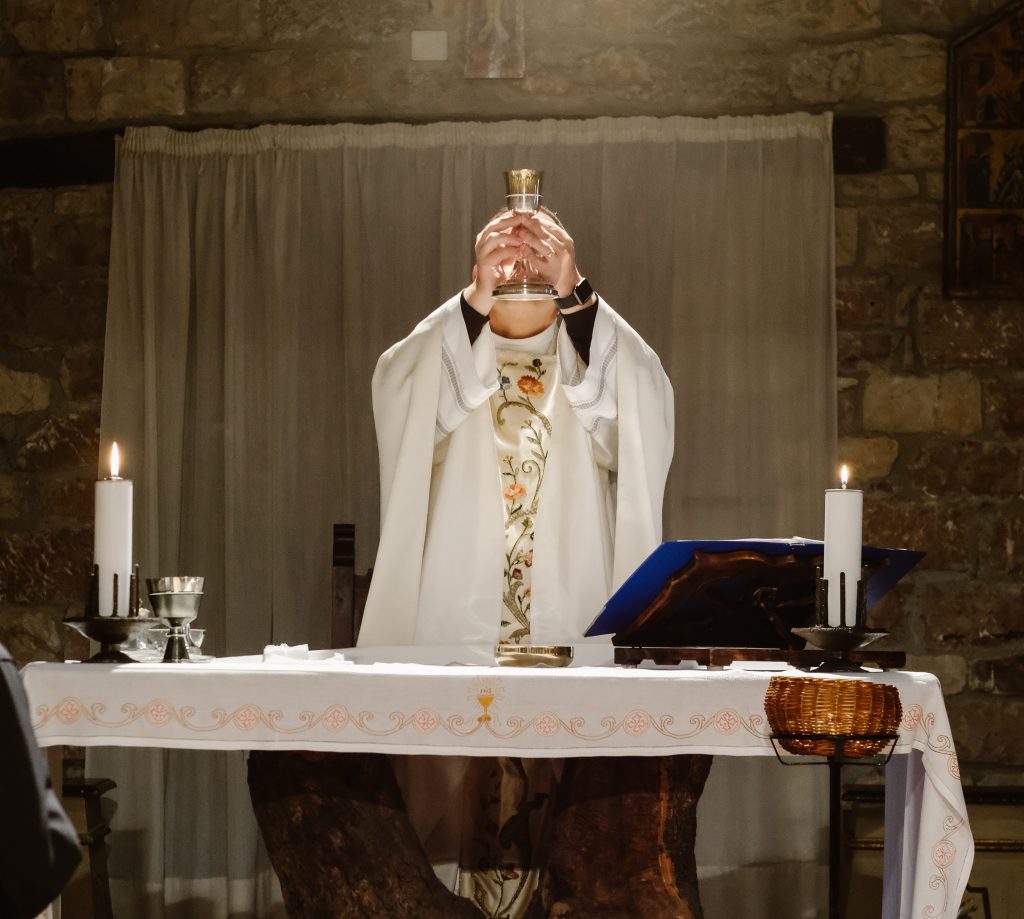
by Joe Bollig
joe.bollig@theleaven.org
KANSAS CITY, Kan. — Like the average layperson, members of religious orders grow old and get sick, or develop disabilities. And like the average layperson, they need care and support.
But unlike the average layperson, they do not have the traditional resources to fall back on. They gave all to serve God and the people of God.
On the weekend of Dec. 12-13, Catholics of the Archdiocese of Kansas City in Kansas will have the opportunity to help members of religious orders who have served them by participating in the national collection for the Retirement Fund for Religious.
The fund helps hundreds of religious orders care for aging members — some 30,000 senior religious Sisters, Brothers and priests.
Last year, archdiocesan Catholics donated $111,829 to the collection. This year, the Servants of Mary Ministers to the Sick (Sisters, Servants of Mary) in Kansas City, Kansas, and the Benedictine monks of St. Benedict’s Abbey in Atchison, received a combined total of $162,334 in financial support from the Retirement Fund for Religious.
But why is there a collection?
The fund for religious was established to address the serious lack of retirement savings among U.S. religious communities.
For many years, because religious served for low wages that did not include retirement benefits — no 401(k) plans and no pensions — now their communities face a critical shortage in retirement savings.
Another factor is that retired religious outnumber wage-earning members. Religious age 70 and older outnumber those younger than 70 by nearly three to one.
There are 28,418 men and women religious age 70 and older in the United States. In 2019, the average annual cost for their care was about $47,000 per person; skilled care averaged $72,000 per person.
Of the 531 religious communities that provided data to the National Religious Retirement Office, only 29 are adequately funded for retirement. Each community is responsible for the care and support of its members, not dioceses or parishes.
It’s easy to see that many religious communities, especially the smaller ones, are being hammered by the cost of caring for elderly members due to a lack of financial resources and personnel.
Funds from the collection may be applied toward immediate expenses, such as medications or nursing care, or invested for future eldercare needs. Funding is also allocated for improved health care delivery and planning for long-term retirement needs. Recently, an online webinar offered professional guidance on adapting care protocols to address issues arising from the COVID-19 pandemic.
“During these trying times, we know the best way to support senior religious is to continue helping their communities address retirement and eldercare challenges,” said Presentation Sister Stephanie Still, NRRO executive director. “Our grateful prayer is with all whose love and generosity sustain this mission.”
For more information, visit the website at: retiredreligious.org.






